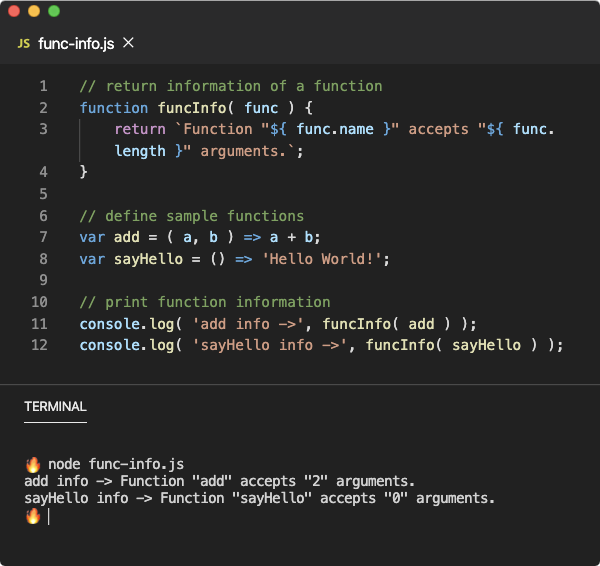Metadata, in a nutshell, is extra information about the actual data. For example, if a variable represents an array, the length of that array is metadata. Similarly, each element in that array is data but the data-type of these elements is metadata. Loosely speaking, metadata is not the actual concern of a program, but it can help us achieve things quicker.
Let’s take a small example. If you need to design a function that prints information about other functions, what information would you print?

(reflect-metadata/func-info.js)
In the above example, the funcInfo function takes a function as an argument and returns a string that contains function name and the number of arguments this function accepts. This information is contained in the function itself, however, we almost never use that in practice. Therefore, func.name and func.length can be considered as metadata.
#nodejs #ecmascript-6 #javascript #ecmascript #es6
